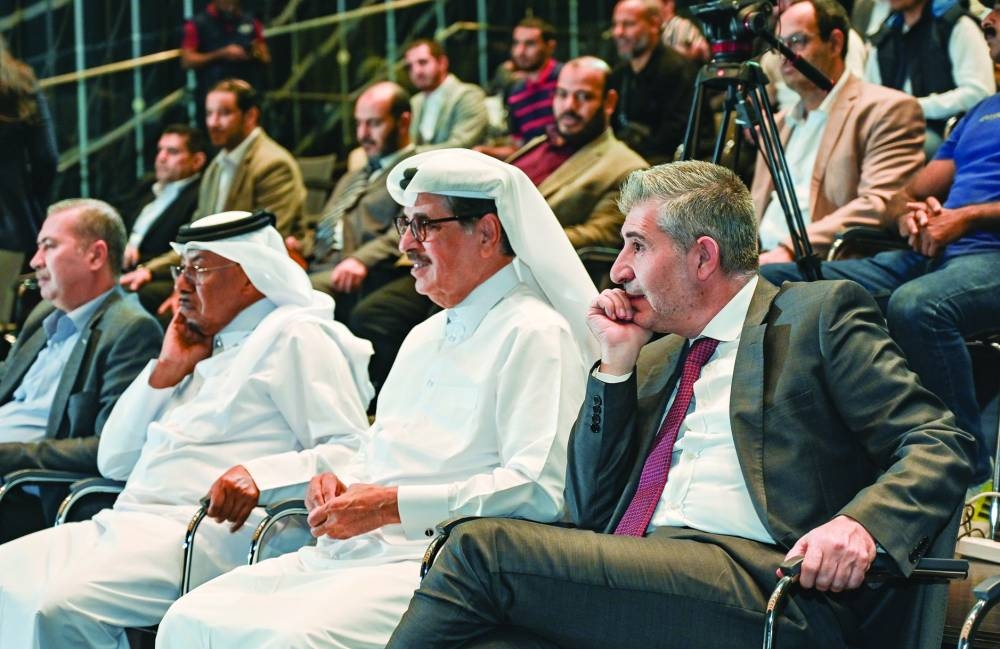Qatar National Library( QNL) in collaboration with Hamad Bin Khalifa University ( HBKU), held the first event of the newly-launched initiative, 'Cultural Salon,' to create a positive atmosphere that enriches culture and raises public awareness through a series of events.
The discussion on the impact of the FIFA World Cup Qatar 2022 on the country and the region was attended by HE the Minister of State and QNL president Dr Hamad bin Abdulaziz al-Kawari, HBKU president Dr Ahmad M Hasnah and other senior officials.
Qatar Press Centre president Saad Mohammed al-Rumaihi moderated the session, which featured Dr Ibrahim Arafat (professor of political science at HBKU) and Ayman Jada (broadcaster, sports commentator, and former director of beIN Sports).
Dr al-Kawari, said: “I am excited to see the “Cultural Salon” event we have been promising for so long finally come to fruition. The opening session exceeded my expectations, thanks in large part to al-Rumaihi, Dr Arafat and Jada, for sharing their knowledge on this important subject. I am confident that the upcoming salon sessions will be just as successful."
Dr Hasnah, noted: “This session addressed a crucial topic. To me, the World Cup was a cultural testament to Qatar and the Arab and Islamic world, showcasing not only our ability to organise such events but also revealing the true image of Arabs to the world."
Jada highlighted that football is not just a game, but a significant part of culture that unites people. He stated that the criticism directed towards Qatar, claiming that it lacks a football history, is unfounded and incorrect. This is because the Football League had existed in Qatar for half a century prior to hosting the World Cup. The success of the World Cup demonstrated the country's ability to compete and excel globally, and also exposed the racism of Western thinking towards Arabs and Muslims.
Dr Arafat reflected on the lessons that can be learned from the World Cup and how Qatar's success has left a lasting impression.
He further identified several issues that continue to affect the relationship between Arabs and the wider world, including Islamophobia, economic exploitation and media bias amongst others.
He argued that while the World Cup challenged prevailing global mental legacies about Arabs and Muslims, changing the status and image of Arabs in the global order cannot be achieved by a single event, nor can it be demanded by one Arab state.
The 'Cultural Salon' will host a series of events throughout the year, featuring experts from various fields. It aims to support the country's cultural and intellectual scene, providing a platform for diverse voices and perspectives.

HE Dr Hamad bin Abdulaziz al-Kawari, Dr Ahmad M Hasnah with other dignitaries at the event.
